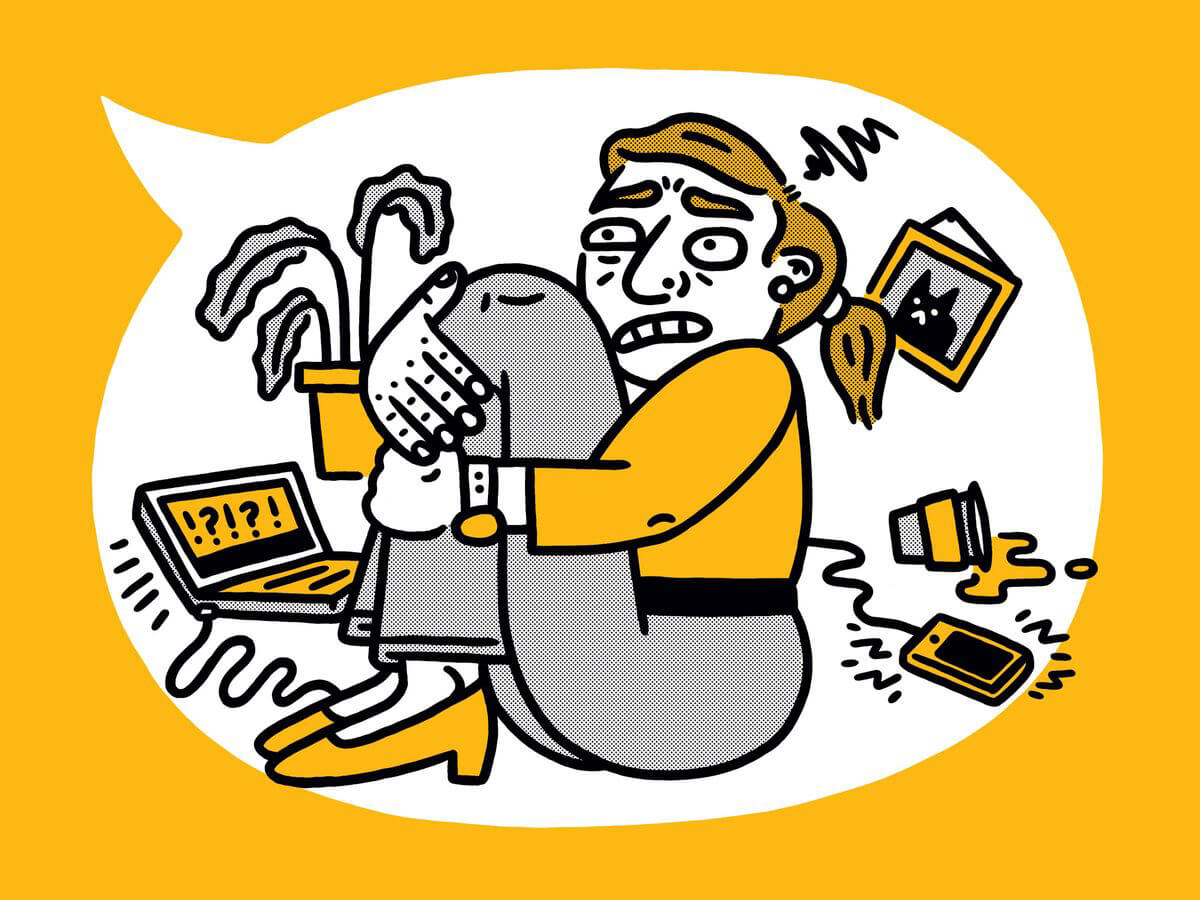Jun 26, 2019 Society
Got issues with work, love, sex, family, friendships, money or the crushing existential angst of modern life? Each week our Metro advice columnist answers a reader’s query and (we assume) solves all their problems.
Read last week’s Dear Metro advice: “Should I tell my husband about the man I’ve been flirting with?”
Dear Metro,
Arbonne has been popping up all over my social media lately and quite frankly, I’m scared. How has another pyramid scheme slipped through the cracks and broken out to the mainstream in such a big way?
I’ve noticed women all around Aotearoa pushing empowering ‘self-made’ quotes on Instagram and claiming they ‘own their own business’, all in the name of fizz sticks, mind health sachets and meal replacement powders. How does it work? And WHY does it work?
Sam
Dear Sam,
The “how does it work” part of your question is easy enough to answer – it doesn’t really. Multi-Level Marketing (MLM) companies are distinct from pyramid schemes in a legal sense (the latter is illegal) but only slightly different in a practical sense. To be an MLM you have to sell a product, which is nominally what the (mainly) women who belong to companies like Arbonne are doing.
Realistically though, profits come not from hocking oils but recruiting people below you, building what’s called a ‘downline’, who then siphon off part of *their* sales profits up to you. You do the same for your ‘upline’. It’s not a pyramid, it’s a reverse funnel system.
Anyway, cold calling (or Facebook messaging) old friends and acquaintances pestering them to buy scented candles is, surprisingly, not a huge money-maker – especially when you’re one of hundreds of people giving it a crack in a relatively small country. Studies in the US have shown most people actually lose money in MLMs – and when I say most, I mean, like, pretty much everyone.
So that’s a basic outline of the how, but it’s the ‘why’ of your question which is stickier (and more interesting) to try to answer. Firstly, people love a get rich quick scheme, always have, probably always will. We’re notoriously bad judges when it comes to assessing risk and frequently believe we will succeed even when the odds are stacked firmly against us. (To quote Tobias from Arrested Development: “It never works. People somehow delude themselves into thinking it might…. But it might work for us.”)
But there is also something about the model of MLMs which so perfectly fits with the current cultural climate. The woman you went to high school with isn’t just selling make-up from her garage; she’s a mumtrepreneur, a #GirlBoss, she’s hustling and she’s slaying it daily owning her own business. The language around MLMs is hugely aspirational. A successful Arbonne Boss Babe (or doTERRA, or any other MLM) isn’t a bored housewife making a bit of extra pocket money; she’s a bad bitch with a white Mercedes, enjoying a free trip to Hawaii, a Rolex on her wrist. It’s hard to think of a time where such a large portion of the population has been encouraged to aspire to more so constantly, and expected to work so hard to get it. I don’t mean in a “keeping up with the Joneses” way, but a new kind of warped normal where if you’re not hustling 24/7 to make bank and, relatedly, your dreams come true, well, don’t whine to me about not having enough money to pay your rent.
There’s always been a subsection of society for whom greed is good, but it’s the completely pervasive nature of this messaging which feels new and different, and kind of awful.
I think often about something a very smart friend of mine once said, that a cultural concept we’ve lost in the last couple of decades is the idea of selling out. As recently as the 90s, leveraging your intimate personal relationships to hock low-quality leggings would have been inherently understood to be distasteful in the extreme. Now it’s just a side hustle.
I hate the wholesale buy-in to the side hustle, and the idea that everything could or should be monetised, especially your free time. It’s also a bit of an out to employers and purveyors of the gig economy – ideally no one would have to hustle, because we’d all make a comfortable living at our regular jobs. Hustling also ties into the concept of “workism”, a term coined in a viral piece in the Atlantic published in February, which basically says work has become not just a place you go for eight or so hours a day so you have money to enjoy the other 16-odd hours you have left, instead it should be a calling, a vocation, something you feel passionate about.
For a lot of people, the idea of working for themselves or being an entrepreneur is a very appealing notion, especially if you were, say, making money on your own terms selling a product you genuinely believed had the power to help someone – which pretty much any even moderately successful seller of tummy tea or fat burning capsules does believe, wholeheartedly, because that’s what the business requires of them (surely you couldn’t send all those obnoxious copy-and-paste messages if you didn’t think the product was legit). And say you didn’t go to university and your job options feel a bit boring, or you had kids and it derailed your career; getting really into oils which may or may not totally cure someone’s allergies is an accessible thing to get enthused about – and hopefully make money from.
Unfortunately, that’s just not going to happen for the majority of (again, mainly) women becoming part of these schemes. And the scary part is it has the potential to absolutely blow up people’s relationships, sometimes beyond repair. Horror stories in anti-MLM groups on social media (of which there are many) relay awful instances where people were cold-messaged by saleswomen after suffering miscarriages, terminal illness diagnoses, divorces. These are extreme cases of course, but the tunnel vision these companies can create (usually through intense pressures to sell, sell, sell – especially if you’ve sunk huge amounts of your own money into an inventory you now can’t get rid of) is quite astounding. Honestly, you’re right to be scared – these are largely predatory schemes selling false promises with the potential to lose people their time, their money and even their friendships.
Approach with extreme caution, and warn any loved ones tempted to give it a go of the potential pitfalls.
With love,
Metro
Send your woes to: dearmetro@bauermedia.co.nz.






